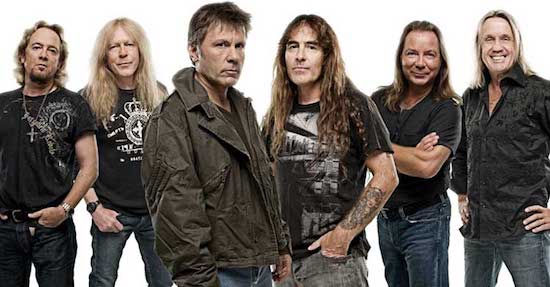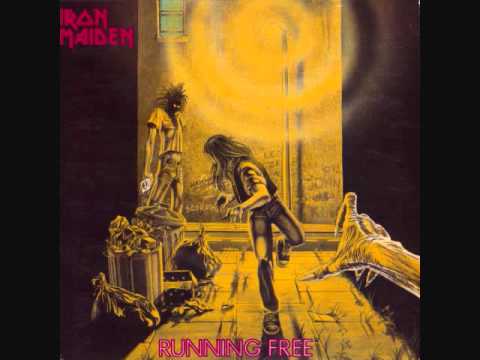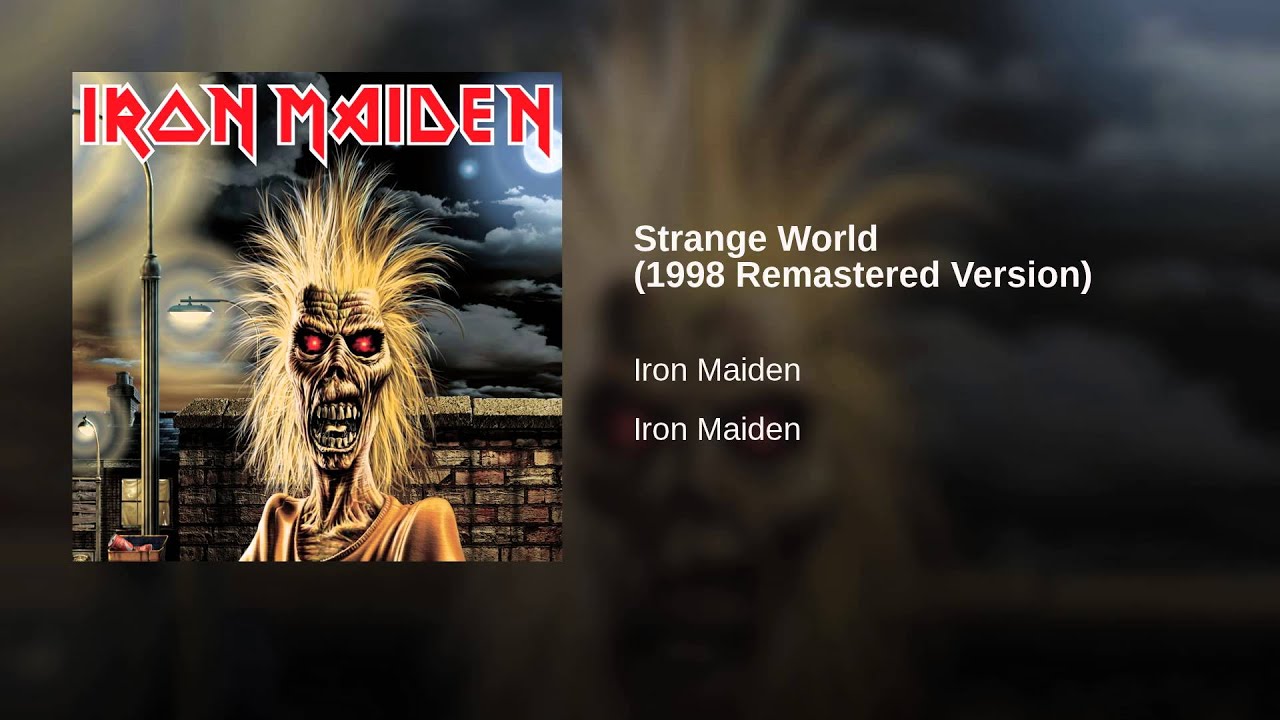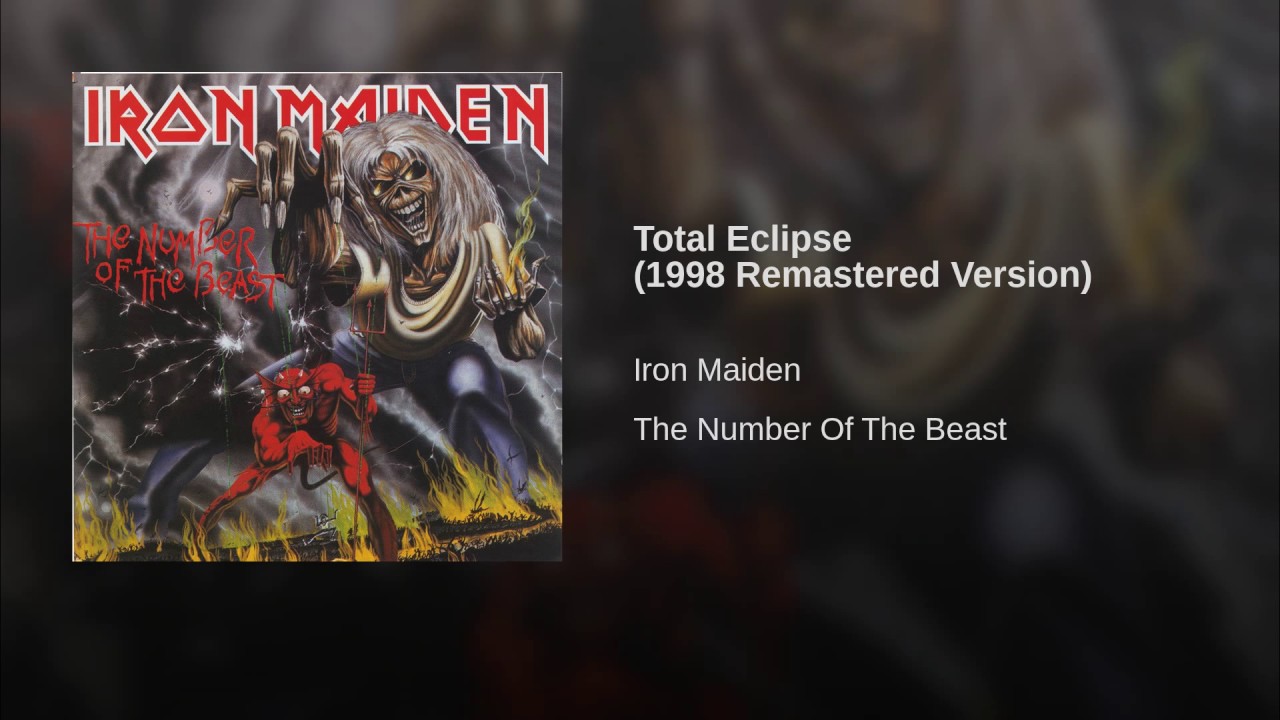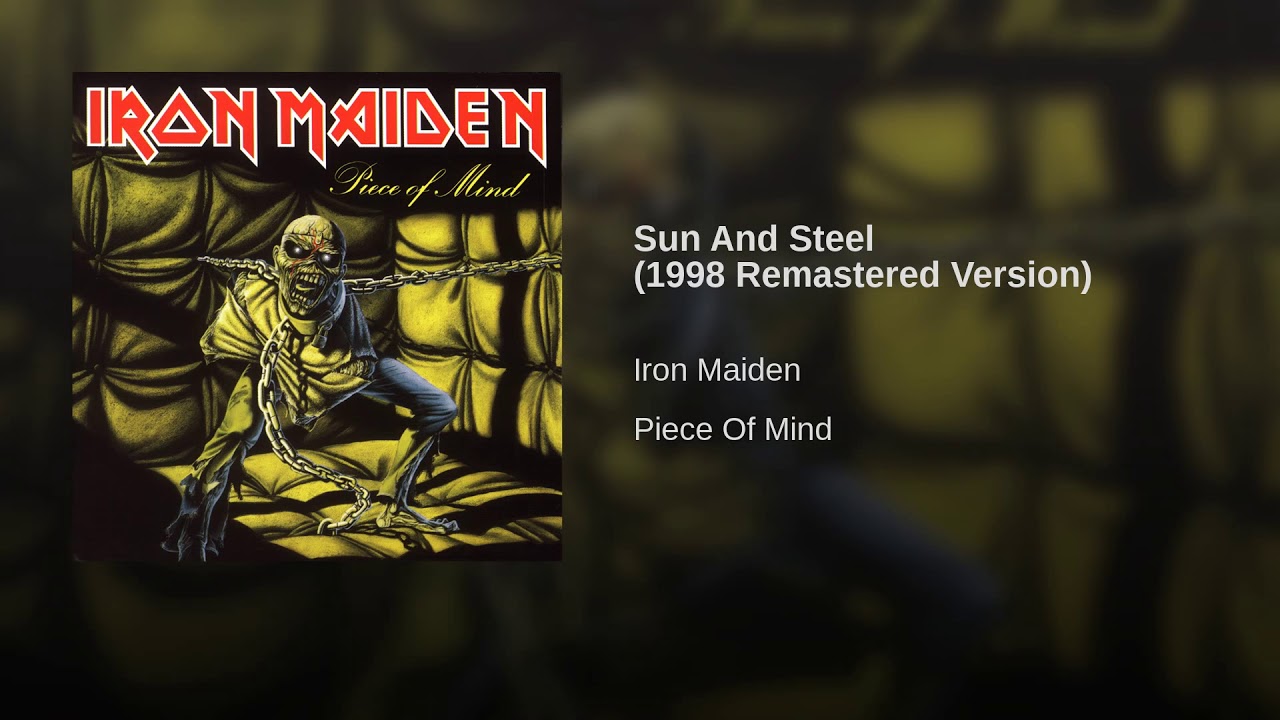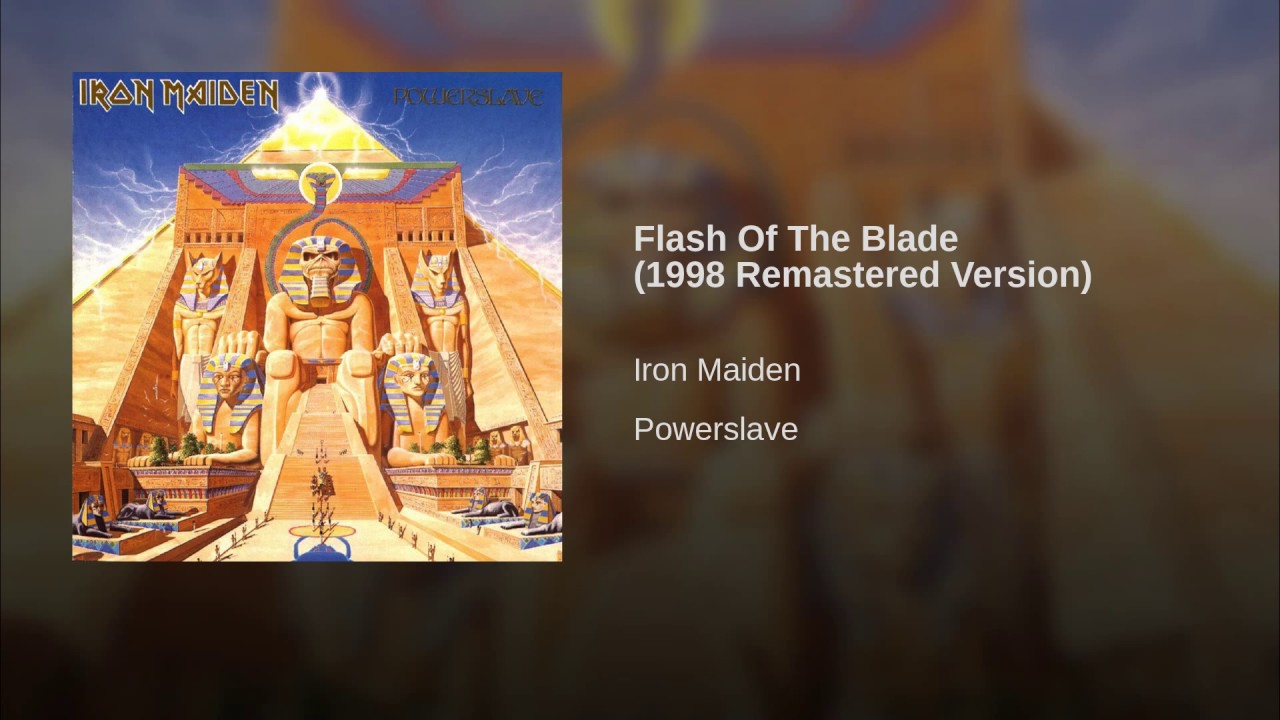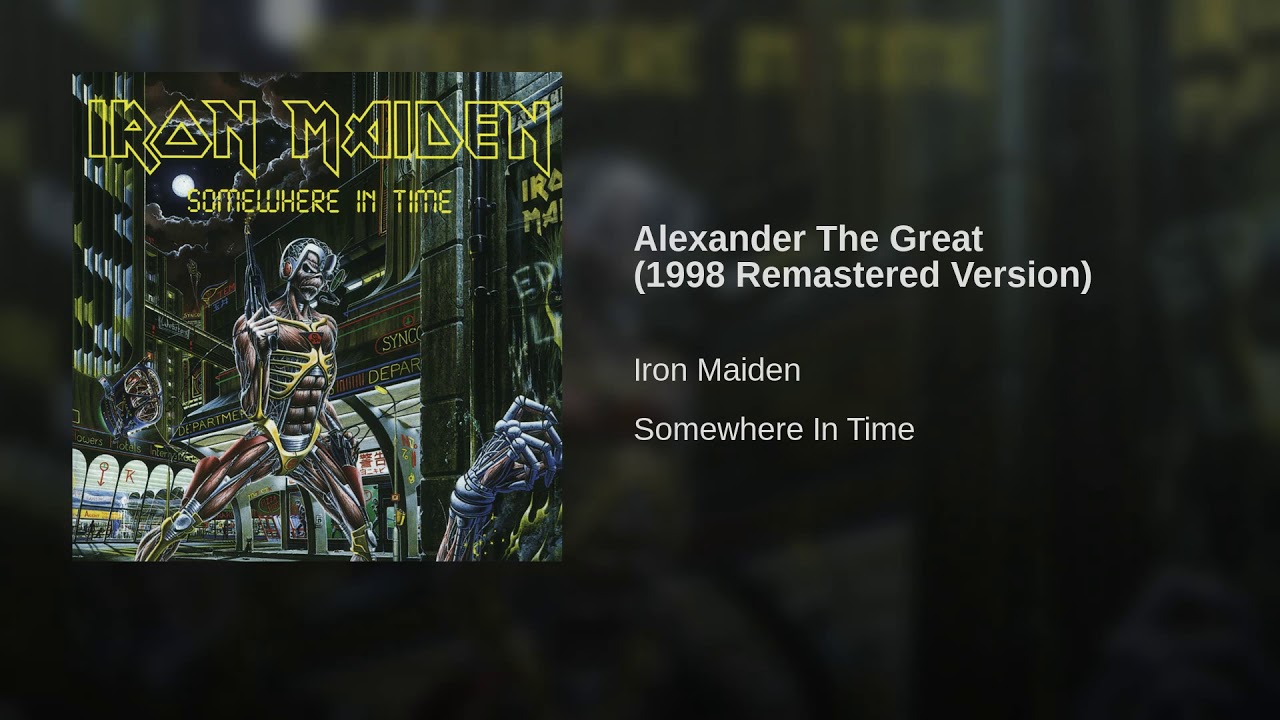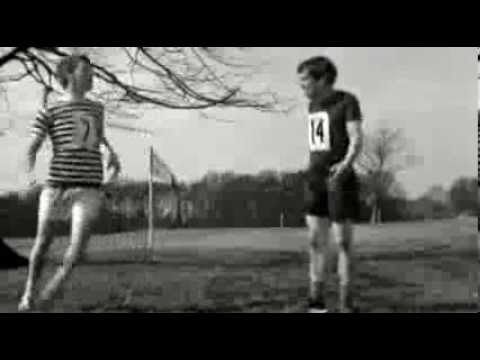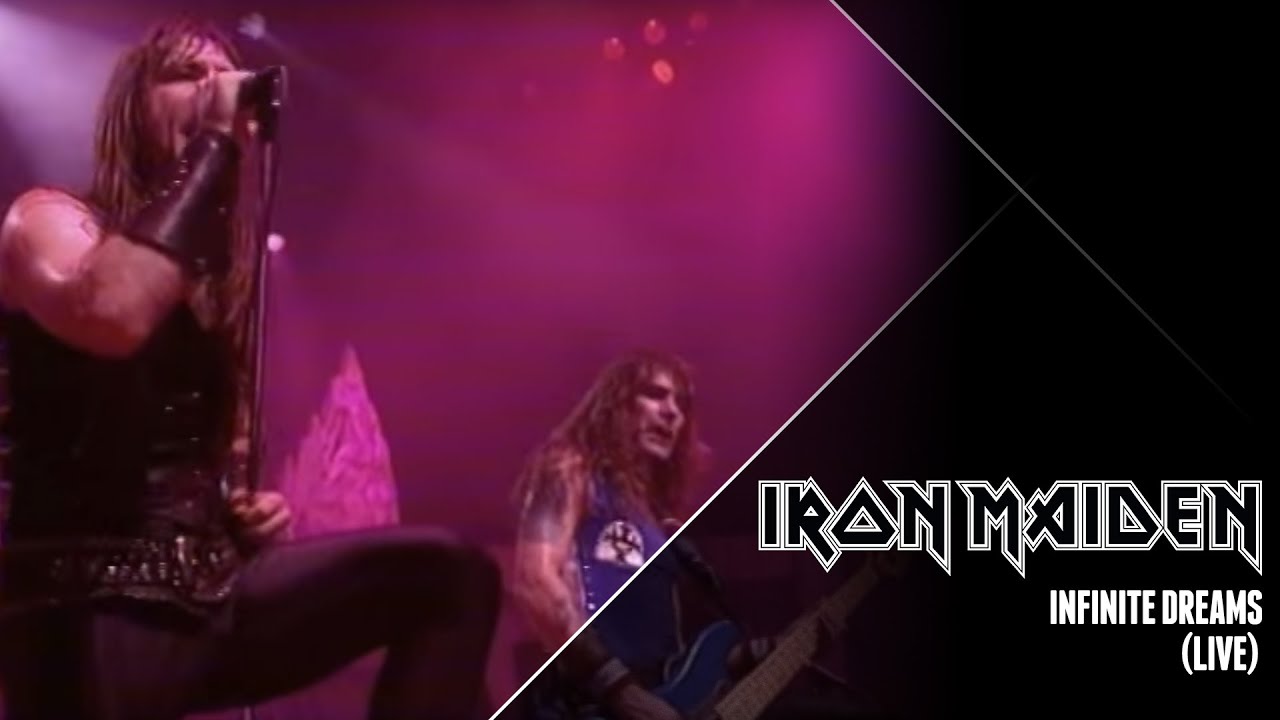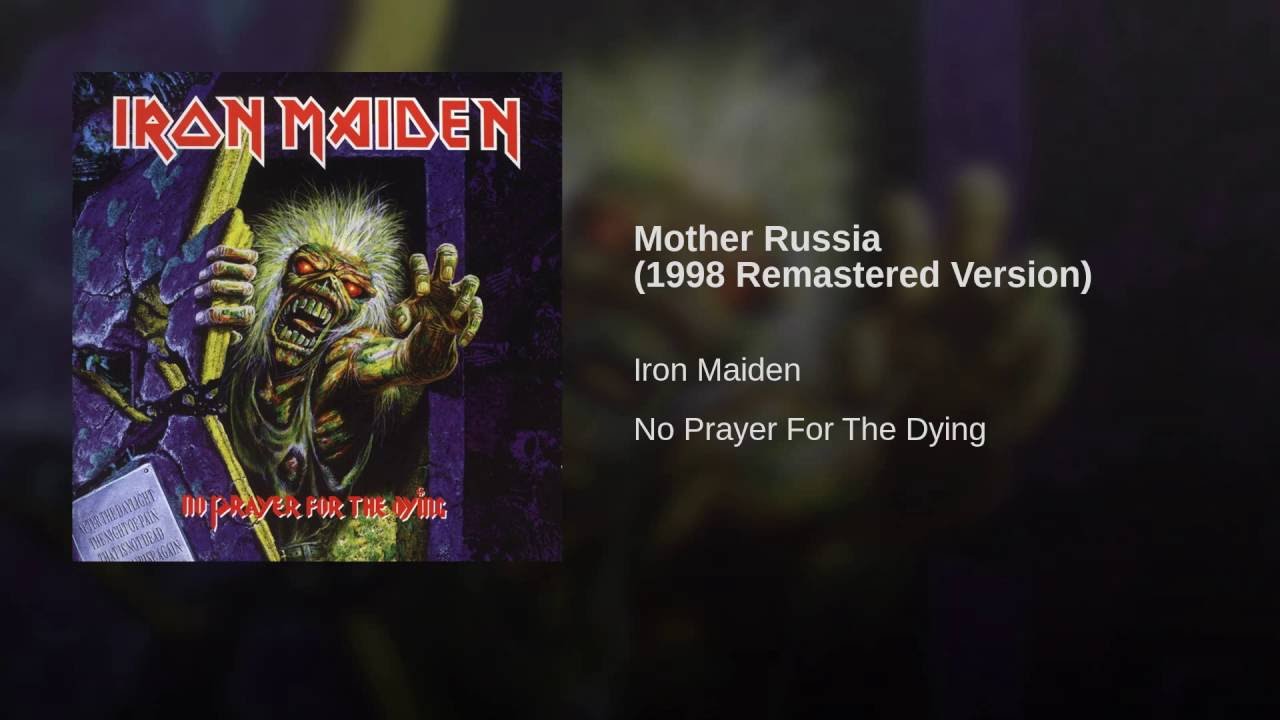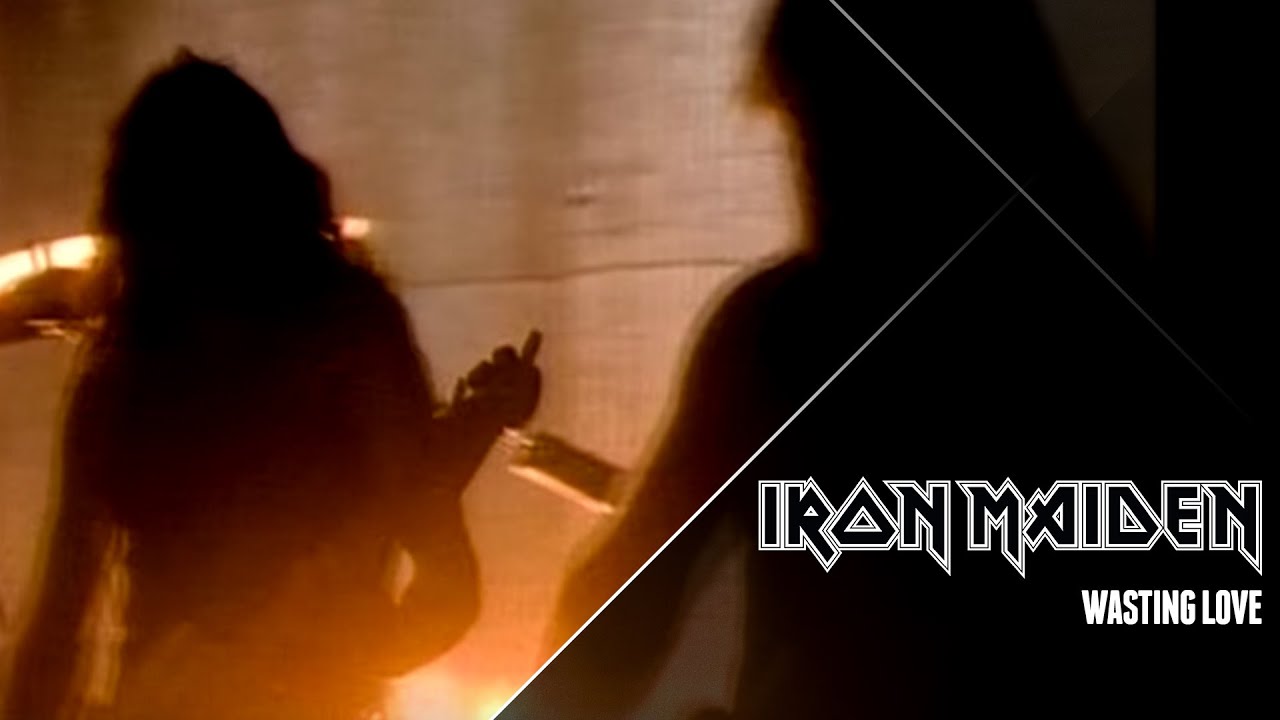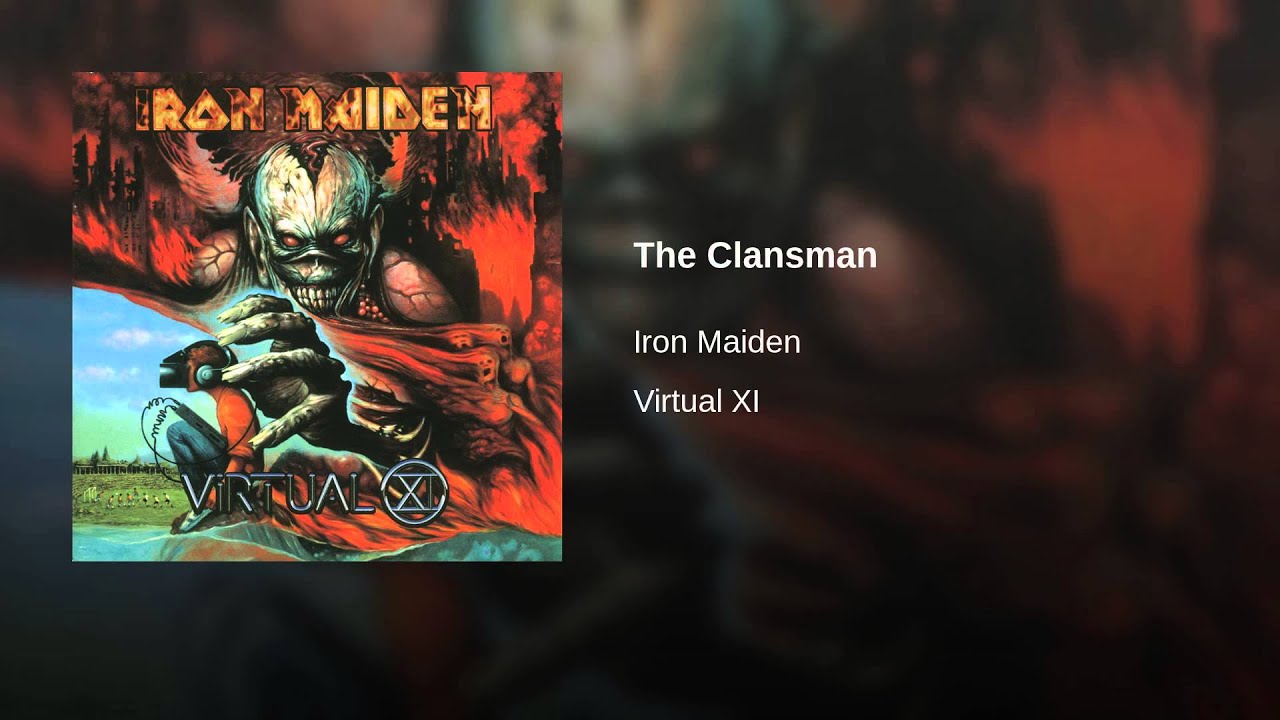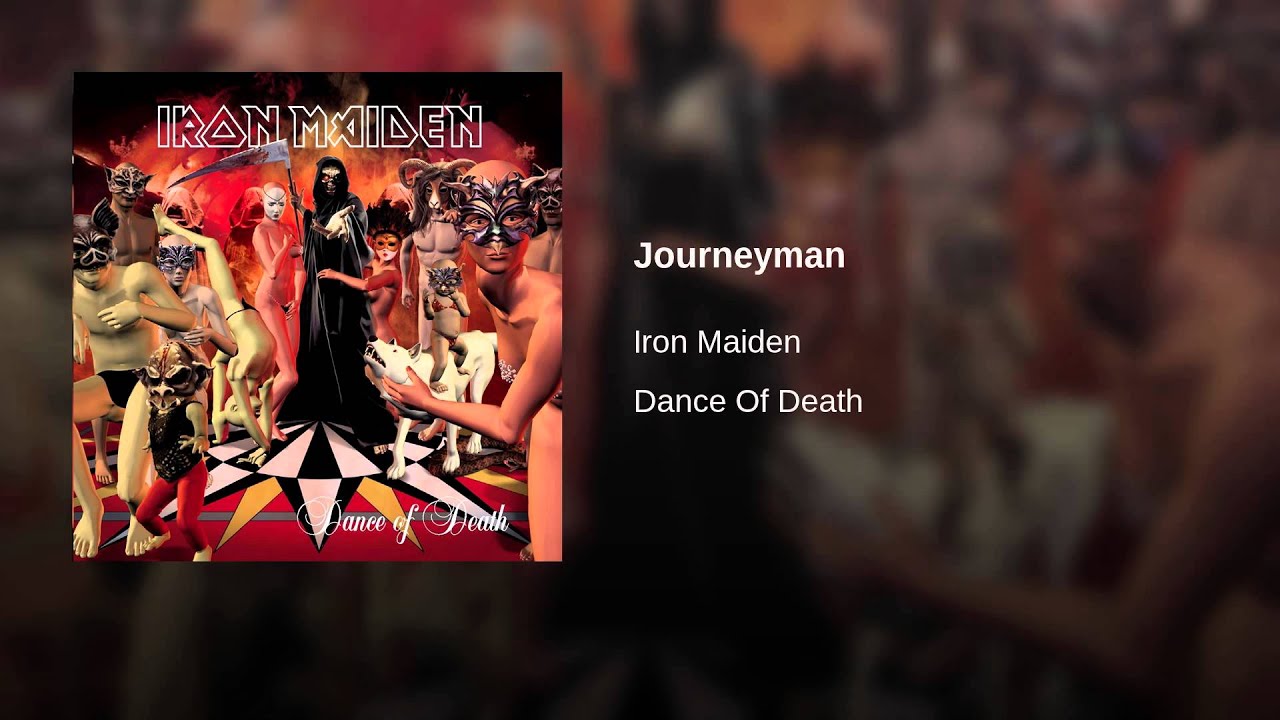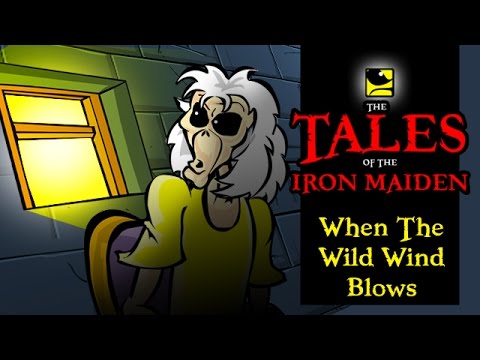‘Burning Ambition’ (1980) from Running Free
An apt title for a young band with a dream. As a 20-year-old Paul Di’Anno yelps “Look out, yeah” you can hear the arrogance and determination of a kid off the streets, who has found an escape from London’s East End drudgery and violence among a pack of oiks who want to play heavy metal, drink beer down their local boozer and don’t want any earache off any woman who thinks otherwise. This song, a b-side to Maiden’s breakout single ‘Running Free’, did not feature on any album until 1995’s reissue of their eponymous debut, and is a naïve ditty about not being being tied down by relationships. In 1979, Iron Maiden – which at the time of writing ‘Burning Ambition’ consisted of Steve ‘Arry’ Harris, Di’Anno, Dave Murray on guitar and Doug Sampson on drums – had things to do, places to be and couldn’t be tamed by wiley women. They headed to Wessex Studios with soon-to-be-sacked producer Guy Edwards to lay down this early song, a groovy rocker that begins with a proggy, poppy guitar intro that points to Arry’s oft-discussed love of Genesis, Yes and Tull but is interrupted by Di’Anno’s snarling raw energy. Those early days of Maiden are an infamous, incestuous revolving door of guitarist drama and this is a rare track in that Murray is on his own, but blimey, the boy knocked it out of the park with a solo around the halfway mark that sounds like the band’s trademark sparring guitar genius is already set in stone. “There’s something burning inside me,” Arry wrote back then, and it’s still on fire 40 years on.
Louise Brown
‘Strange World’ (1980) from Iron Maiden
Iron Maiden are known for being the godfathers of the second wave of British heavy metal. They’re known for their demon speed, that signature bass gallop, ludicrously preposterous drumming, duelling guitars, charismatic frontmen who whip crowds into a near-religious frenzy, and over-the-top theatrics, even going back to their pub rock days with a proto-Eddie mask that would spew blood over whichever sucker was manning the drum stool that day. But let’s not forget that they’re equally deft at moments of quiet, emotive introspection. The band, back on their debut in 1980, seemed to fall into two camps; former skinhead delinquents (Murray and Di’Anno) and prog nerds (Harris and second guitarist Dennis Stratton). Fuelled by Wishbone Ash, UFO and soppy 70s AOR ballads ‘Strange World’ is a stand-out Maiden masterpiece lost to the annals of Maiden setlists as it’s never been performed with a post-Di’Anno line-up. Shame as it’s a beautifully evocative song that seems to be about death, the afterlife, accepting fate, being lost… know one really knows, but one theory is that since it follows the instrumental ‘Transylvania’ and mentions lasses necking claret there could be a Bram Stoker nod there, maybe a paean to a newly-bitten member of the undead accepting his immortal fate. Whatever it’s about it’s a perfect spacey chill-out number for when you need to bring the pace down and one we all wish the band would bring back from the dead, once more… with feeling (Buffy reference for the ones at the back… sorry).
[LB]
‘Total Eclipse’ (1982) from Run To The Hills
By January 1982 Di’Anno is out of the band, and Samson singer Bruce Dickinson is in, and that you could say, is history. But during the recording of their third album, Number Of The Beast, which, by the way, would be their first Number 1 album in the UK, they got a bit trigger happy in the studio and had to make a choice between including the Al Capone themed ‘Gangland’ and this, the perfect NWOBHM anthemic beauty. Maybe having a song with all the trademarks of the then-becoming-dated new wave metal scene rubbing up against epic bangers like ‘Run To The Hills’ and ‘Hallowed Be Thy Name’, was why it got downgraded to a b-side, and were it not for reissues and compilations would be a sorely lost classic. I love the song’s simplicity, I love the fact that this track and ‘Run…’ would have been the fans’ introduction of Brucey’s dramatic, wailing operatic flair, the antithesis of Di’Anno’s tough guy routine, and most of all I love, that on a day where I am melting while writing this, I can whole-heartedly claim that ‘Total Eclipse’ is Maiden’s climate change warning. “Around the world the nations wait/For some wise word from their leading light/You know it isn’t only madmen who listen to fools/’Is this the end?’ the millions cried/Clutching their riches as they died/Those who survive must weather the storm.” Anyone else feeling the effects of “Mother Nature’s Black Revenge” right now? Climate action now, Steve Harris predicted this back in 82 and it’s not too late to fix it.
[LB]
‘Sun And Steel’ (1983) from Number Of The Beast
It’s 1983, and Maiden have a got a new drummer in the form of cheeky, Jim Davidson joke telling, children’s television puppet obsessed scamp, Nicko McBrain and the band decamp to their home-from-home in the Bahamas to write album number four. Piece Of Mind gave us the ‘The Trooper’, a brewer’s marketing dream come true, and the religious hymn for all Maiden zealots, ‘Revelations’. But it also allowed Dickinson, now on his second album, to come up with more stories from his boyhood to weave into heavy metal classics. On Number Of The Beast, the band cribbed themes from films like Omen, history lessons on the Vikings, books such as The Midwich Cuckoos and TV shows like The Prisoner. This time Bruce delved into ‘The Charge Of The Light Brigade’, Dune, Aleister Crowley and Greek mythology with a song saved for one of his favourite subjects, the secrets of the sword. It’s no secret that Bruce was a bit of a keen fencer and could have taken it up professionally, and ‘Sun And Steel’ is the first Iron Maiden song to reference this element of his many extra-curricular talents. Based on a historical tale of the ronin samurai, Miyamoto Musashi it holds all that classic Maiden gallop, narrative panache and singalong choruses that makes them so beloved. To my knowledge it’s never been played live, which is a real shame.
[LB]
‘Flash Of The Blade’ (1984) from Powerslave
My friend’s son is eight years old and he’s obsessed with Iron Maiden. He says they’re the prince of songs, which is a better description of them than any I’ve heard from my fellow hackneyed music critics. And sometimes I imagine what it must be to be eight and love this band who are fronted by a man who actually flies planes, and sword fights, and when he’s on stage tells the audience that no matter who they are, and where they’re from we’re all one family. Don’t send your kids to school, send them to Iron Maiden concerts. Following on from ‘Sun And Steel’, here’s another song woefully left off live setlists, and starts with the lyrics, “As a young boy chasing dragons”, which conjures all the youthful playfulness that Dickinson has never lost. 1984’s Powerslave was the album that saw their following reach fever pitch and ‘Flash Of The Blade’ is a full-on fantasy tale about a sword-wielding warrior and is a masterclass in Smith/Murray guitar duelling excellence. It came out the same year as Yngwie Malmsteen’sRising Force and while Great Kat was already shredding Beethoven brilliance over in the States and Blackmore was doing Blackmore, this song deserves to be hailed as a neoclassical metal masterpiece. No wonder so many power metal bands cover it.
[LB]
‘Alexander The Great’ (1986) from Somewhere In Time
This one is for the classical history nerd inside every Headbanger, Earthdog, Rivet Head, Hell Rat and Metal Maniac. A fantastic composition, ‘Alexander’, deserves recognition for myriad reasons: (1) it stands as one of Iron Maiden’s finest epics; (2) it’s criminally overlooked in their extensive canon, majestically ending an excellent album mainly noted for numerous well-known tracks, ‘Caught Somewhere In Time’, ‘Wasted Years’, ‘Sea Of Madness’ and ‘Heaven Can Wait’ (to name basically half the album); (3) it stands as one of band leader and founder Steve Harris’ most erudite and evocative writing credits due to its historical biographical arc (a first, unless you argue, tenuously, for the mesmerising instrumental ‘Genghis Khan’ from 1981’s ‘Killers’); (4) Bruce Dickinson’s timeless, rousing vocals, when you take into account the main verse lyrical complexity, exudes a sense of grandeur worthy of a man who became king at 19, conquered most of the (then) known world, and in doing so became a legend still revered to this day; And finally, Iron Maiden has never played ‘Alexander’ in a live setting. Reasons, namely the song’s complexity, especially during the jaw-dropping middle section, have been given, which is unfortunate because ‘Alexander’ is quintessential Iron Maiden and does not deserve to be one of their deeper cuts.
John Mincemoyer
‘Loneliness Of The Long Distant Runner’ (1986) from Somewhere In Time
That eight-year-old kid I mentioned above, well, I recently told him about the story of ‘The Loneliness Of The Long Distant Runner’ and he must have thought I was such a cool aunt, with all this amazing knowledge of books and films, when no, I’m just a Maiden fan. Inspired by a 1959 short story by Alan Sillitoe, and turned into a 1962 film starting Tom Courtenay, ‘Loneliness’ is a social commentary on the welfare state, class and punishment, and it’s just so remarkable that Steve Harris wrote this lengthy epic on such a subject at the height of their fame and fortune. Growing up in Hackney and Leyton in the 1960s would have surely meant the band knew kids who had been sent to borstal, and this story is one of defiance and loyalty that would have resonated with both the band and their fans. Another track that has, to my knowledge, only ever been played once, it’s a stand-out on an album of Maiden staples and showcases their interest in new music technologies, bringing in keyboard synths underneath Dickinson’s vocal gymnastics. Is it one of Murray and Smith’s greatest guitar-offs? I reckon so.
[LB]
‘Infinite Dreams’ (1988) from Seventh Son Of A Seventh Son
Seventh Son Of A Seventh Son was the second album I ever got at the tender age of 11 years old, after a long time of being terrified/fascinated by Eddie covers on record stores. That, and the way an atypical, very loose and bluesy song without a real chorus like this one still managed to burrow its way into my brain straight from that trepidation of the first listen would be reasons enough to have special feelings for ‘Infinite Dreams’, but there’s more. For someone infatuated with language from very early on, it’s still remarkable how wordy this song is – and reportedly Bruce still made a lot of cuts to Steve’s original text – and how beautifully it flows nevertheless, all while raising timeless existential questions that go far beyond the context of the narrative being told. It’s not exactly transcendental poetry, but something like the verse that begins with, ”Wouldn’t you like to know the truth”, weighs heavily on the mind of an 11-year-old boy from Portugal in the late 80s. As a sort of beautiful anomaly even in Maiden’s varied songwriting career, it would deserve a much more regular spot in their setlists. Oh, and Bruce’s scream at 3:14? My first taste of "extreme" vocals. The man has a lot to answer for.
Jose Carlos Santos
‘Mother Russia’ (1990) from No Prayer For The Dying
A much maligned album that, perhaps through the lack of overplaying of most of its songs, feels like a mine of unsung little gems almost 30 years after, and the best example is its “Maiden epic”. Shorter and different in scope than its predecessors at the time, such as the aforementioned ‘Alexander The Great’ or Samuel Taylor Coleridge inspired ‘Rime Of The Ancient Mariner’, ‘Mother Russia’ focused on history more literally and more based on current events like few other of their songs before. During the time when the Soviet Union was dissolving, Steve Harris’ perspective is quietly mournful, recognising the glorious past of the country despite its equally tragic history at a particularly decisive moment, but also hopeful (”Can you release the anger, the grief?/Can you be happy now your people are free?”). As such, it stands as a fascinating period document, especially set against everything that has happened in the following 28 years. That they were able to do this in just over five minutes instead of the usual 10/15 of their historical epics speaks volumes about the quality of the songwriting, as does this simple fact – remove all words, and just by the music itself, you could still associate the song with Russia in an elegant but clear way.
[JCS]
‘Wasting Love’ (1992) from Fear Of The Dark
The 90s are seen as a wasteland for traditional heavy metal, and bands like Iron Maiden were starting to lose out to big arena rock bands from over the pond. Even their once-NWOBHM comrades Def Leppard were whipping them on the Billboard charts, but that’s the charm of Iron Maiden, they didn’t ever chase trends. They did what Maiden do best, and time has been kind to them as styles and sub-genres have come and gone and they’ve proven that sticking to what you know favours the brave. Almost. You have to give a moment of pause to ‘Wasting Love’. I like to imagine the scene in Steve Harris’ converted barn/studio on his sprawling Essex pad, they’re flicking through Kerrang! and wanting to know who the fuck Sebastian Bach is and why there’s a giant poster of him with his top off. They ask a PA to run down to Our Price and buy a Skid Row CD so they can see what all the fuss is about, then one of ’em asks if they’ve clocked the bollocks that is ‘Don’t Cry’ on MTV. Cue the most perfect ’90s radio rock ballad. And despite only being released as a single in The Netherlands, it beats all your ‘November Rain’s and the Bon Jovi ones with Liv Tyler and Alicia Silverstone in the video. Written by Bruce and guitar acrobat Janick Gers (who joined Maiden in 1990), the song is about the loneliness of one-night stands and along with ‘Fear Is The Key’, a song about the HIV epidemic written in the wake of the death of Freddy Mercury, shows an emotional, sensitive side to a band who usually stick to topics of fantasy and history.
[LB]
‘The Clansman’ (1998) from Virtual XI
As nu-metal grips the music world, Iron Maiden plough on regardless. With Wolfsbane’s Blaze Bayley still at the helm while Bruce flies commercial planes, tours in war-torn Sarajevo and writes stinkers like the Skunkworks album or whatever else he was up to, Maiden bite back with an album part inspired by that year’s fever pitch World Cup. Anyone who knows anything about Iron Maiden knows that football is religion to them and ‘Arry can often be seen playing with his team of crew members before each gig of the tour, often against local teams or support bands. 1998 also saw Iron Maiden grasping new technologies as they launched their first computer game Ed Hunter, which came hand-in-hand with a best of compilation – never one to miss a marketing trick, huh Steve? It wasn’t quite ‘Goldeneye’ on the Nintendo64 but you could listen to ‘Wrathchild’ while you shot aliens in an East End pub. The accompanying album is known in most Maiden circles as the “one to avoid” but that would mean missing out on some hidden gems, like this Braveheart-inspired beauty that is currently being toured on their most recent computer game touting run. A nine-minute opera that begins with Blaze’s breathy warnings about the plight of the Scots as feudal England tries to plunder their lands and builds into an emotional anthem about damning the man and protecting your tribe. You’ve never seen Maiden until you’ve seen them in Aberdeen with 10,000 drunk Scots bellowing the chorus of “Freedom”.
[LB]
‘Journeyman’ (2003) from Dance Of Death
The millennium saw Dickinson and Smith return to Maiden and rather than kick Janick Gers out they decided to become a rare triple-guitar powerhouse, and have remained so to this day, with Gers being a distinct highlight on live shows with his absolute lack of respect for both tools and colleagues as he throws his guitar around with whimsy and shows off his impressive bendiness as legs go akimbo at will – not bad for a 60-year-old. 2003’s Dance Of Death was a mighty album, and a personal favourite as it was the first time it properly felt like life had restored for this Maiden maniac. I didn’t see Maiden in the 90s, my friend Fiona Marshall did and I remain brutally jealous to this day and still hate my mum and dad for ruining my life. But I did see them in 2000 at Earl’s Court and even though I broke my toe it was a rite of passage for me. Seeing Maiden live every year or so became a necessity and Dance Of Death was the first album where I had rushed out to buy every single in every variation on release day. So when people talk about early Maiden being the only Maiden I get rightly protective. ‘Paschendale’, ‘Rainmaker’, ‘Montsegur’, this is an album jam-packed with some of the best songs they’ve penned but on this list, for fear of making it just a run down of this entire record, is Maiden’s maiden acoustic voyage, ‘The Journeyman’. Dickinson himself describes it as left-field, and while not exactly experimental or avant garde, it is a step away from Maiden’s usual foot-to-the-floor pace, and paves the way for proggier wanderings on subsequent albums. Themes remain from songs like ‘The Loneliness Of The Long Distant Runner’, ‘Wasted Years’ and ‘The Clansman’ though in that it’s a song about defiance, and standing strong in your own selves and being proud of who you are and the life you’ve lived. Raise your fists aloft, “You know what you want, no one can take it away."
[LB]
‘When The Wild Wind Blows’ (2010) from The Final Frontier
The context in which you begin a relationship with a record really matters. When The Final Frontier was a couple of months away from being released, I was invited for a listening session at the label’s office, with the added pressure of having to write a review based on that session. I was kindly requested to leave my bag and phone on a desk and enter a room where there was only a sound system, a table for meetings and a few chairs. I sat down facing a lady from the office (who would sit there for the whole duration) and was handed a pair of headphones, a pen and some paper, and play was pressed. I don’t think I ever paid so much attention to anything as in those 76 minutes that followed. When the equally gripping ‘Coming Home’ ended I had already decided this was a fantastic record, before entering the final triptych of epic tracks. “Best album since Seventh Son” was already a thing in my mind, and when this incredible song based on a heartbreaking animation film (with the ending changed for extra cruel sadness) was over, I was pretty much reduced to, "Whoa!" I hope I was slightly more eloquent than that in the final review. Even now, with hindsight, and unlike most of the Maiden-listening world, I still rate The Final Frontier as highly as the 80s classics, and this particularly outrageously beautiful song in the same league as their lauded epics from those albums.
[JCS]

